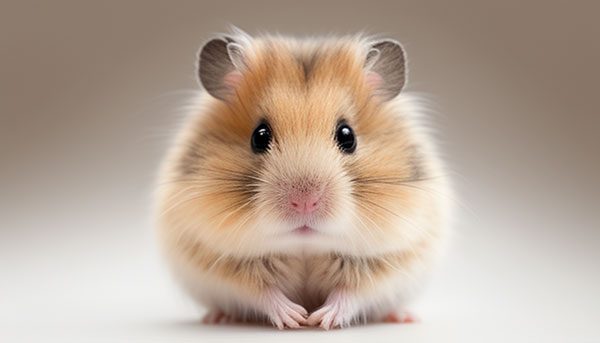Can a Bath Kill a Hamster? Know the Facts
Baths are a common part of our daily routine, but what about our furry friends? Hamsters are among the most popular pet animals, but it raises questions about their care, including the safety of taking a bath.
Can a bath kill a hamster? No, a bath in itself should not kill a hamster. However, hamsters are sensitive to temperature changes. They can quickly become stressed or even go into shock if submerged in too hot or too cold water. As a result, bathing your hamsters in water isn’t recommended.
In this blog post, we will explore the dangers of bathing hamsters and the steps that should be taken to ensure their safety. Additionally, we will delve into the best practices for bathing hamsters and why it may be important for their hygiene and well-being.
Why Bathing a Hamster is Not Recommended?
Bathing a hamster might seem like a simple and harmless way to keep them clean, but in reality, it can be a dangerous practice that can cause harm to your pet. Here are four dangers to consider before deciding to bathe your hamster.

1. Hypothermia
Hamsters are not built for water, and prolonged exposure to it can cause them to get hypothermia. Their fur does not provide enough insulation to keep them warm in the water, and their tiny bodies can quickly lose heat. When a hamster’s body temperature drops, it can lead to serious health problems and even death.
2. Stress
Hamsters are sensitive creatures, and being immersed in water can be highly stressful. The sensation of being in a foreign and unfamiliar environment can cause them to become frightened and stressed. This can lead to physical and emotional trauma and have long-term consequences for your pet’s health and well-being.

3. Drowning
Hamsters are not natural swimmers; even shallow water can be dangerous for the hamster. If your hamster falls into a body of water, it could drown. The risk of drowning is even higher if the hamster is wet, as their fur can make it difficult for them to move around.
4. Skin Irritation and Infection
Water can also cause skin irritation and infection in hamsters. The skin and fur of hamsters are delicate and prone to infection, especially if exposed to contaminated water. This can lead to serious skin problems and even life-threatening conditions.
Alternatives to Bathing a Hamster
Since bathing a hamster with water is dangerous, here are some alternatives to bathing a hamster that you can use to keep them clean and healthy.

Spot Cleaning
Spot cleaning involves using a damp cloth to clean specific areas of your hamster’s body, such as its face, fur, paws, and tail. This method is less likely to cause hypothermia and is a safe alternative to bathing with water.
To spot-clean your hamster, moisten a cloth with lukewarm water and gently wipe down the areas that need to be cleaned. Ensure you avoid using soap or other cleaning products, as these can harm your hamster.
Brushing
Brushing your hamster’s fur is a great way to keep them clean and prevent matting. Hamsters have soft, dense coats that can become matted easily. So regular brushing is important to keep their fur in good condition.
You can use a soft brush designed for hamsters, or even a toothbrush, to gently brush their fur. Be gentle and avoid pulling on tangles, as this can cause pain and discomfort to your hamster.
Dust Baths
Hamsters love dust baths! Dust baths are a natural and safe way to keep your hamster clean and mites-free. Simply provide a shallow container filled with sand, dust, or hamster bath sand and let your hamster roll around in it.

The dry particles will help remove excess oils and dirt from their fur. Dust baths are also great for keeping your hamster’s skin healthy, as they help to exfoliate and remove dead skin cells.
Use of a Hamster House
Hamsters are naturally clean animals and will naturally groom themselves if given the right environment. Providing a hamster house with a spacious interior and plenty of bedding material, such as aspen or recycled paper, will encourage your hamster to burrow and nest.
And that will help keep their fur clean and free of debris. However, clean the hamster house regularly to maintain a hygienic environment.
Regular handling
Handling your hamster regularly helps to keep its fur clean, as it rubs off any dirt or debris. It also allows you to check for any signs of skin irritation or mites. Just make sure to handle your hamster gently and avoid squeezing them too tightly, as this can cause pain and discomfort.
Cornstarch Dusting
Cornstarch is a gentle and natural alternative to bathing your hamster. Dust a small amount of cornstarch on your hamster’s fur and gently rub it into its fur. The cornstarch will absorb oils and dirt, leaving your hamster’s fur clean and fluffy.
How to Keep Your Hamster Clean and Hygienic?
Hamsters are adorable and loveable pets, but keeping them clean and hygienic is essential for their health and well-being. Let’s look at some tips for keeping your hamster clean and hygienic.

Regular Cage Cleaning
The first step in keeping your hamster clean and hygienic is regularly cleaning its cage. This should be done at least once a week and more often if necessary.
- Clean the cage by removing all bedding and toys and washing the cage with pet-friendly soap and water
- Dry the cage thoroughly before replacing the bedding and toys
Providing a Healthy Diet
Providing a healthy diet is also essential for keeping your hamster clean and hygienic.
- Hamsters need a balanced diet that includes a variety of fresh fruits, vegetables, and high-quality hamster food
- Avoid feeding them sugary or fatty foods, as these can lead to health problems and make it more challenging to keep them clean

Offering Fresh Water and Bedding
It is also important to offer fresh water and bedding to your hamster.
- Clean their water bottle daily, and replace the bedding once a week
- Make sure to use bedding specifically designed for hamsters
- Avoid using cedar or pine shavings, as these can harm their health
FAQs
Here are some of the frequently asked questions related to hamster bathing.
Q: Can a Hamster Drown in a Bath?
Yes, a hamster can drown in a bath. Hamsters are poor swimmers and can quickly become disoriented and unable to stay afloat in water.
Q: What should I do if my hamster gets dirty?
If your hamster gets dirty, you can clean them with a damp cloth but avoid getting their fur wet. It is important to keep their living environment clean and provide fresh bedding to maintain hygiene.
Final Thoughts
Bathing a hamster can be dangerous if not done correctly. Hamsters have delicate skin and a delicate respiratory system. Exposure to water can cause stress, skin irritation, and even in extreme conditions, cause death. Therefore, understanding the proper way to bathe a hamster and recognizing the signs of stress and illness is important.
If your hamster does not tolerate bathing, there are alternatives such as dry cleaning, sand baths, and cleaning their home that you can use to keep them clean and hygienic. Always prioritize the health and well-being of your hamster. Also, be mindful of their reactions to any changes in their environment.




